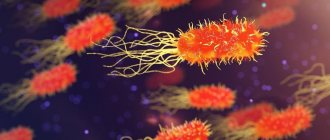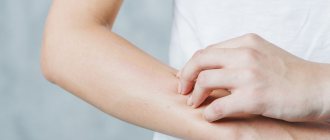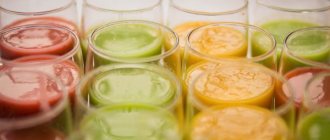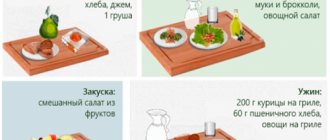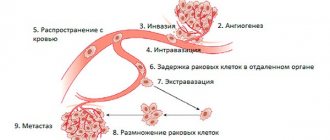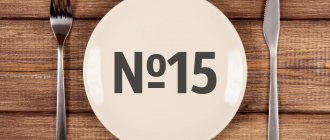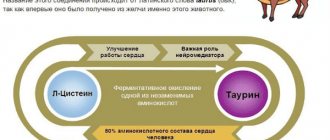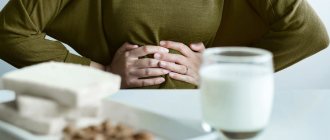What is this operation
A polyp is a benign tumor-like formation on a stalk or broad base, hanging from the walls of a hollow organ into its lumen. In some cases, tissue degeneration into malignant neoplasms is possible. Removal of polyps is done as part of the prevention of rectal cancer.
There are cases when polyps cause discomfort: abdominal pain and rectal bleeding. Removing them also helps relieve painful symptoms.
Features of nutrition at the end of the month
By the end of the recovery period, the patient is prescribed diet No. 1. It allows for significant expansion compared to previous versions. The total food mass reaches 3–3.5 kg, calorie content 3000–3200 kcal.
The requirements for a gentle diet (mashed dishes) continue, but porridge with diluted milk (millet is excluded), kefir are introduced, chopped meat, casseroles, small vermicelli or noodles, and omelettes are allowed. You can eat pureed vegetables to a limited extent. Berry and fruit jelly are allowed.
The composition of the menu corresponds to the physiological daily norm: protein increases to 100 g, fats can be 100–110 g, carbohydrates 400–450 g. The patient is allowed:
What can you eat if you have appendicitis?
- dried wheat bread, crackers, biscuits;
- cereal soups with non-rich meat broth;
- boiled dishes from lean meat and fish, soufflés, cutlets, meatballs;
- vegetable puree from carrots, potatoes, cauliflower, pumpkin, zucchini;
- non-acidic berries and fruits in compote, boiled in porridge, baked;
- a little honey, jam.
How long the patient will be on diet No. 1 depends on the individual characteristics of the disease and immunity. Most often it takes 2–3 weeks.
Vitamins and mineral supplements
You may now not eat some foods that you ate before surgery. To get all the vitamins and minerals you need, you may benefit from taking 1 multivitamin tablet per day. Multivitamins should contain the recommended daily dose of vitamins and minerals.
You may need to take specific vitamins or minerals. Ask your doctor or nutritionist what you should take. Examples of such fruits:
- Vitamins A, D, and E You may need to take vitamins A, D, and E in water-soluble form. This is a rare occurrence and only occurs when a large portion of the ileum is removed.
- If you have had the end of your ileum removed, you will need vitamin B12 injections every 1 to 3 months.
- You may need extra calcium, especially if you have had most of your ileum removed but most of your colon remains intact.
- With excessive diarrhea, potassium levels may decrease. Ask your doctor if you should eat potassium-rich foods. These include oranges, potatoes, tomatoes and bananas.
- If you have a lot of diarrhea, ask your doctor whether you should take a zinc supplement.
Oral rehydration solution
- If you have a lot of diarrhea, your doctor may recommend that you drink an oral rehydration solution. This will replenish the fluid, sodium and potassium that leaves your body in stool.
- You can purchase an oral rehydration solution (such as Hydralyte®) at your local pharmacy without a prescription, or you can make your own. This is not the same as sports drinks (like Gatorade®), which do not contain the same amount of nutrients.
Liquid food additives
- If you are losing weight, high-calorie liquid nutritional supplements may help. However, depending on your surgery, some supplements may not be suitable for you. The main reason for this is the high sugar content.
- Your doctor or nutritionist may recommend a special low-sugar supplement whose ingredients are "pre-digested" and therefore easier to digest. He may also recommend medium chain triglycerides (MCT), a type of fat that is easily digested for extra calories. Always consult your physician before taking supplements.
- If you can eat or drink dairy, try the fortified milk recipe. It will increase the amount of calories and protein in your diet.
to come back to the beginning
Preparation rules
The operation is prescribed after a comprehensive examination. It implies:
- consultation with a coloproctologist and examination of the rectum with an endoscope;
- blood test for clotting and infections:
- consultation with a therapist and electrocardiogram;
- fluorography or RGC.
It may be necessary to discontinue medications taken to thin the blood. 3 days before removal of polyps in the intestine, a diet is followed. During this period, it is recommended to take liquid food and plenty of water. The preparation is the same as for a colonoscopy.
When should you contact your healthcare provider?
Call your healthcare provider if you experience any of the following:
- diarrhea and fever 100.4°F (38°C) or higher;
- diarrhea and vomiting;
- diarrhea that does not stop for more than 24 hours;
- diarrhea, foul-smelling discharge, or increased leakage from the stoma.
If you have questions about your diet, call 212-639-7312 to speak with an outpatient dietitian.
You can contact a branch employee from Monday to Friday from 9:00 to 17:00. to come back to the beginning
